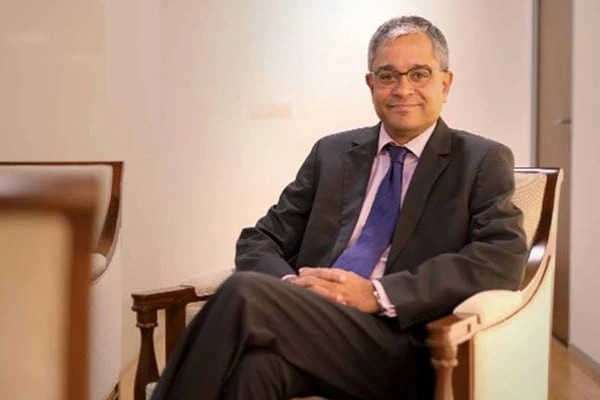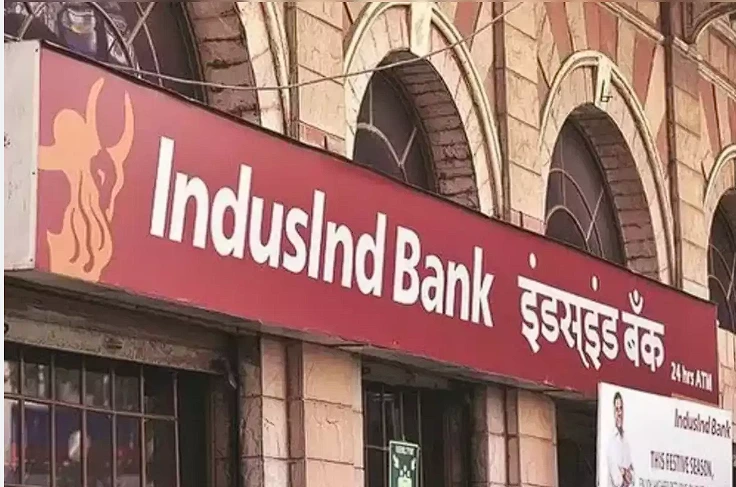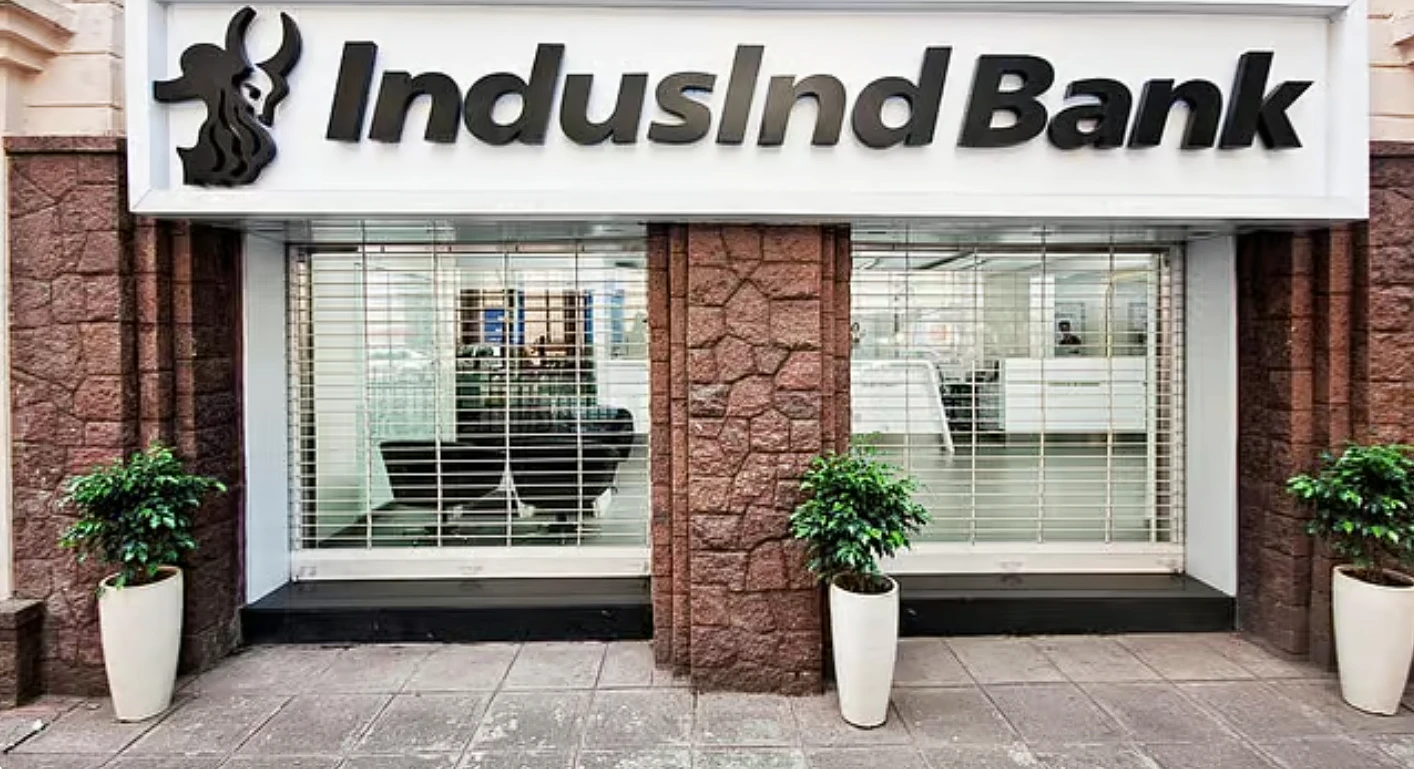Table of Contents
📉 Introduction: IndusInd Bank Faces Leadership Turmoil
IndusInd Bank faces a critical leadership crisis as CEO Sumant Kathpalia and Deputy CEO Arun Khurana resign amid a ₹1,960 crore derivatives scandal. With RBI scrutiny intensifying, the bank aims to stabilize through an interim committee and external audits, seeking to restore trust.
🔍 Derivatives Fiasco: The Core of the Crisis
At the center of the crisis lies a long-standing issue in the bank’s derivatives trading. An external investigation uncovered inconsistencies going back more than six years, during which profits may have been inflated through weak internal controls and aggressive income recognition. The fallout from this led to a massive ₹1,960 crore reduction in the bank’s net worth—equivalent to nearly an entire quarter’s earnings.
Further scrutiny revealed that several trades were improperly classified, resulting in understated risks and overstated earnings across multiple financial years. These accounting irregularities were not just technical oversights—they point to systemic lapses in oversight, risk assessment, and governance. The issue has deeply shaken investor confidence and drawn the attention of regulatory authorities, especially the Reserve Bank of India.
In reaction, the bank has pledged to strengthen its internal systems and implement all recommendations from the ongoing forensic audit. These efforts aim to prevent similar occurrences and restore investor confidence by ensuring greater transparency, accountability, and accuracy in the bank’s financial reporting and derivative operations.
🧑💼 Leadership Vacuum: A Critical Phase
The dual exit of Sumant Kathpalia and Arun Khurana has left a significant void at the top. To manage this period of transition, IndusInd Bank has been granted approval by the RBI to form an interim executive committee tasked with overseeing day-to-day functions until a permanent leadership solution is found.
The interim team comprises senior leaders Soumitra Sen and Anil Rao, who will jointly manage operations with oversight from the board. This stopgap arrangement is intended to sustain momentum and minimize disruption to daily business.
Market experts believe that bringing in an external candidate with a robust background in risk management could go a long way in restoring stakeholder confidence. However, until a permanent appointment is made, maintaining strategic clarity and consistent decision-making will remain a key challenge.
🔄 Leadership in Transition: Rajiv Anand Emerges as Top Contender

With the resignation of CEO Sumant Kathpalia, IndusInd Bank is in the midst of a crucial leadership reshuffle. Speculation is growing around Rajiv Anand, currently serving as the Deputy CEO at Axis Bank, who is believed to be a frontrunner for the role. Known for his deep experience in the banking industry and his strong grip on risk oversight, Anand is considered a suitable candidate to guide IndusInd Bank through its current turbulence.
Bringing Anand on board is being seen as a calculated move to restore investor and stakeholder trust. His tenure at Axis Bank is noted for a disciplined approach to compliance and operational safety—traits that IndusInd Bank urgently needs as it navigates regulatory scrutiny. The Reserve Bank of India (RBI)’s earlier decision to extend Kathpalia’s term by just one year, rather than the usual three, highlighted a clear demand for more capable leadership during these sensitive times.
Choosing a new CEO goes beyond routine succession—it’s a signal of commitment to stronger governance and organizational stability. Anand’s credibility and leadership record could serve as a catalyst for strategic renewal. However, the handover must be handled delicately to ensure stability and to directly address the recent financial and procedural discrepancies the bank has faced.
As IndusInd Bank prepares for this change, investors, regulators, and analysts will be paying close attention. The next leadership choice will shape the bank’s recovery path and its ability to rebuild confidence and long-term performance.
🛡️ Governance and Regulatory Action: Lessons for the Sector
The RBI’s decision to limit the CEO’s term renewal and the subsequent top-level resignations reflect the central bank’s growing focus on governance in financial institutions. These developments send a strong message to the entire banking industry about the need for ethical leadership, strict regulatory compliance, and proactive internal oversight.
This incident underscores the importance of aligning with regulatory expectations—not just in letter, but in spirit. The RBI has made it increasingly clear that it will not hesitate to intervene in the event of persistent governance failures or systemic risk. The decision to approve an interim management team shows the central bank’s commitment to stabilizing the institution without allowing leadership lapses to derail operations.
More broadly, this episode is likely to catalyze tighter scrutiny across the sector, with other banks expected to reassess their own governance frameworks, audit procedures, and risk management strategies. For financial institutions, the message is simple: robust governance is no longer optional—it’s essential for long-term credibility and resilience in an increasingly transparent and regulated environment.
🧾 RBI’s Active Role: Tightening Oversight to Safeguard Systemic Integrity
In response to the unfolding situation at IndusInd Bank, the Reserve Bank of India has stepped in with swift and decisive measures. It has cleared the formation of an interim executive leadership team tasked with managing daily operations during the leadership void—an uncommon but telling move.
The RBI’s quick action demonstrates its resolve to uphold the banking system’s integrity while ensuring minimal disruption. By limiting Kathpalia’s term extension and closely monitoring subsequent decisions, the central bank has sent a clear message about the importance of sound corporate governance.
This regulatory intervention is also a broader signal to India’s banking industry: robust risk protocols and transparency are non-negotiable. The RBI’s actions aim to preserve the stability of the financial system and guard against contagion risks that could ripple beyond a single institution.
For IndusInd Bank, this represents both a challenge and an opportunity. Aligning with the RBI’s expectations means revisiting internal controls, enhancing compliance measures, and demonstrating a renewed commitment to sound governance. Only then can the bank hope to recover credibility and assure its stakeholders of its long-term viability.
📊 Market Reaction: Stock Under Pressure
Investors have responded negatively to the turmoil, with IndusInd Bank’s share price dropping by approximately 8% following news of the accounting discrepancies. Financial analysts at institutions such as Jefferies and Emkay Research have since revised their stock outlook, citing concerns over governance and the bank’s microfinance loan exposure.
The dip in stock price reflects more than just an immediate market reaction—it signifies a deeper erosion of investor trust. With uncertainties surrounding leadership transition, potential regulatory penalties, and the full extent of financial misreporting, the market remains cautious. Even seasoned investors who typically look for buying opportunities during price corrections are approaching this stock with hesitation.
Additionally, the broader financial sector views this episode as a red flag, prompting a re-evaluation of similar institutions with opaque governance or complex derivative portfolios. Until the bank demonstrates clear and measurable progress in its reforms, the stock may continue to trade under pressure. Restoring investor faith will require not just leadership change but a visible and sustained commitment to governance, transparency, and internal reform.
📉 Investor Confidence Hit: Market Cap Dips ₹80,000 Crore

IndusInd Bank has suffered a sharp decline in its market capitalization—nearly ₹80,000 crore lost since January 2024. This drop reflects the financial market’s concern over recent internal issues, especially irregularities in derivatives accounting and top-level instability.
This fall in valuation is more than just a financial dip—it’s a clear sign of declining investor confidence. Shareholders have grown wary of governance lapses and the bank’s capability to steer through this crisis. Concerns have deepened amid the RBI’s close involvement and the absence of a permanent CEO, which have added to the sense of uncertainty.
Market analysts have revised their ratings on IndusInd Bank, citing ambiguity surrounding future earnings and the extent of possible regulatory consequences. While the bank has responded by setting up a temporary executive committee and starting the search for new leadership, these actions alone may not be enough. To win back trust, the bank must act with clarity, transparency, and a renewed focus on risk management.
📈 Peer Comparison: IndusInd vs. Major Private Banks
| Aspect | IndusInd Bank | HDFC Bank | ICICI Bank |
|---|---|---|---|
| Leadership Stability | CEO & Deputy CEO recently resigned | Stable | Stable |
| Regulatory Scrutiny | Elevated due to accounting issues | Moderate | Moderate |
| Stock Performance (YTD) | -8% | +12% | +15% |
| Risk Management | Under investigation | Strong | Strong |
| Investor Confidence | Uncertain | High | High |
📊 Standing Among Peers: How IndusInd Bank Compares in the Private Sector
Amid the current leadership vacuum and growing regulatory scrutiny, IndusInd Bank’s performance contrasts noticeably with other major private-sector banks. Institutions like HDFC Bank and ICICI Bank continue to demonstrate consistent stability and a disciplined approach to governance and risk.
Unlike IndusInd, these banks have avoided similar controversies and maintained steady investor confidence. Their stock prices have been relatively resilient, showing that strong internal frameworks and leadership consistency continue to be rewarded in the marketplace. Meanwhile, IndusInd’s market value and investor trust have taken a noticeable hit.
Moreover, both HDFC and ICICI have invested heavily in building robust internal controls, digital transformation, and diversified business portfolios—factors that have helped them absorb market shocks better and maintain regulatory confidence. Their quarterly results reflect healthy margins and controlled asset quality, which only widens the gap between them and a scandal-hit IndusInd.
Institutional investors are closely monitoring these discrepancies. Where HDFC and ICICI are seen as “safe havens” in volatile markets, IndusInd is now perceived as a high-risk bet. This reputational damage could take years to undo unless the bank introduces visible, sweeping reforms.
In essence, the situation highlights the growing importance of governance not just as a compliance requirement, but as a key competitive differentiator in the Indian banking landscape.
📝 Final Thoughts

The situation at IndusInd Bank serves as a powerful reminder of the pivotal role governance and transparency play in banking. Though the bank is facing significant challenges, strategic leadership changes, regulatory alignment, and stronger risk controls could pave the way for recovery. How effectively the bank navigates this critical phase will shape not only its future but also offer important lessons for the broader banking sector.
❓ FAQs
1: Why did the CEO of IndusInd Bank resign?
👉The resignation was triggered by a significant accounting error in the bank’s derivatives portfolio, which led to a ₹1,960 crore impact on its financial position.
2: What was the market’s reaction to this development?
👉Following the announcement, IndusInd Bank’s stock dropped by nearly 8%, reflecting concerns about leadership instability and potential earnings volatility.
3: What steps is the bank taking to resolve the crisis?
👉The bank has formed an interim executive committee and is working with external auditors to investigate and address the financial discrepancies.
4: How should investors view this development?
👉While the stock may appear undervalued, investors should tread carefully, focusing on how the bank navigates leadership replacement and regulatory compliance.
5: What does this mean for the banking industry?
👉The situation underscores the importance of governance, transparency, and robust internal control systems across the sector, prompting greater regulatory scrutiny.
📊 Poll: Investor Sentiment
Do you think IndusInd Bank can recover from its current crisis within the next year?
🔘 Yes
🔘 No
🔘 Unsure
Let us know your answer in the comments !
📣Stay Updated with TrendingDaily24
For the latest insights on business, finance, and investment trends, follow TrendingDaily24. Stay informed, make smart investment decisions, and navigate market fluctuations with expert guidance. Our platform delivers real-time updates, in-depth analysis, and actionable strategies to help you thrive in a dynamic economic landscape. Whether you’re a seasoned investor or just starting out, TrendingDaily24 equips you with the tools and knowledge to stay ahead, minimize risks, and maximize returns in an ever-changing financial world.
Check out our other articles – Saudi Aramco Faces Profit Decline by 12%
Check out our other articles on X – Discover the sporty charm new Honda SP 160

